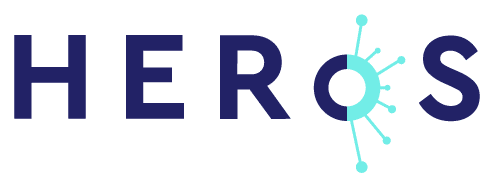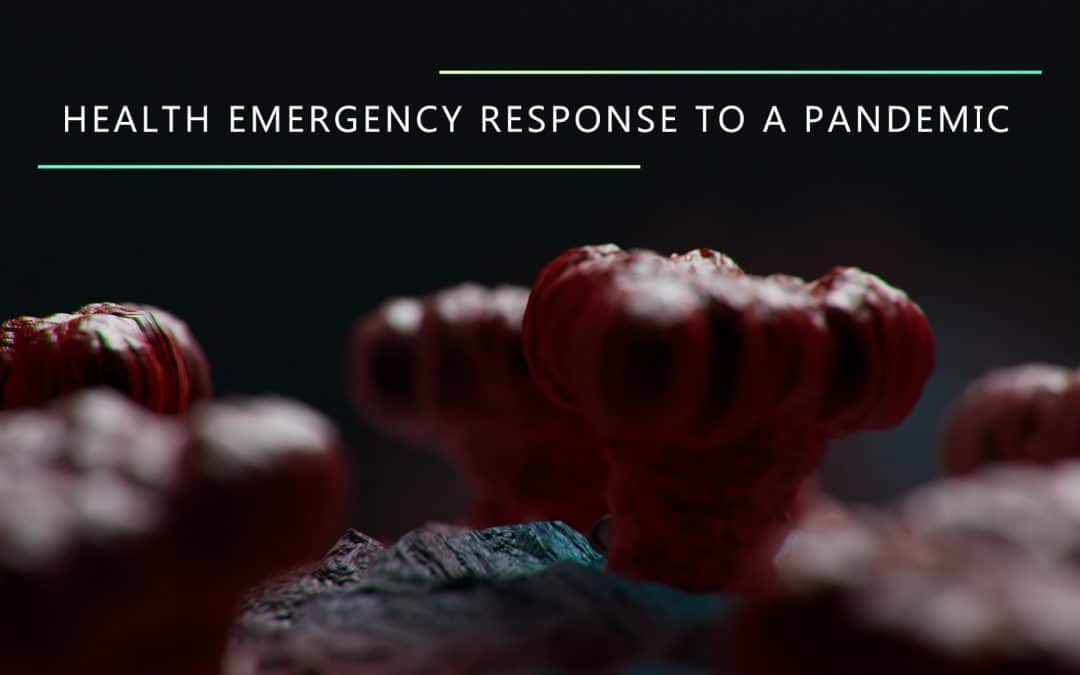Workplan
- Project structure
- Governance
- Behavioural models in epidemics
- Supply chain management
- Social media analytics
- Dissemination, communication, training and sustainability
- Project management
There are six work packages in the HERoS project. The first four – Governance, Behavioural Models in Epidemics, Supply Chain Management and Social Media Analytics – correspond to the main areas of research. The two other work packages are dedicated to dissemination, communication, training, on the one hand, and project management, on the other.
WP1 analyses workflows, processes, coordination structures and multi-layered governance arrangements in the response to Covid-19. Research in this WP is related to establishing governance principles and protocols that enable a seamless coordination between sensemaking and decision-making locally, nationally and internationally. In the first phase, this project will start with an analysis of current workflows and processes, systems, and principles. HERoS will provide a solid taxonomy of governance arrangements, and identify redundancies, bottlenecks and potential friction. From there, this WP develops processes and guidance on how best governance practices for epidemics response embedded into humanitarian practice. To this end, this WP builds on methods from organizational theory and netcentric governance. Netcentric governance is defined as connecting self-directed networks of heterogeneous stakeholders, within an environment enabled by (shared) technological and organizational infrastructure. It is an adaptive way of dealing with a polycentric, interconnected world, based on an understanding and leveraging of the (concentrated or distributed) governance mechanisms of each of the relevant networks, but in concert with one another.
Through the organizational theoretical perspective this WP will unravel inter-organizational coordination mechanisms including information sharing and collective sensemaking. Through the netcentric governance perspective this WP will define principles for Situation Awareness by means of Common Operational Pictures. It will investigate how the various stakeholders create a sufficient level of shared understanding through a sensemaking process in which organizational members (de/re)construct information (i.e. the ‘information ecology’) influenced by their institutional/professional background to find out what is going on in times of uncertainty. An important starting point of this WP is the vast array of evidence on crisis response highlighting emergent and unforeseen collaborations. These collaborations appear in particular when demands are not met by existing response organizations, or when responses are insufficient or inappropriate.
The aim of WP2 is to develop robust policies that are efficient and effective in combatting the outbreak of epidemics disease. Epidemics essentially spread through contact networks. To consider the impact of local population structures and behaviour from the bottom up, this WP will develop an Agent-based model. This model will be combined and coupled with a network model based on system dynamics to model the spread across globalised networks. Data will be provided from all end user partners, and triangulated with official sources (such as WHO, ECDC). To manage the tremendous uncertainty in the infectiousness and lethality, we will conduct exploratory analysis to test the impact of different policies, such as quarantines, travel bans, or establishing additional hospitals. These analyses will allow us to identify robust policies that minimize the regret as well as critical scenarios that lead to an undesired spread of the epidemics. Data visualisations to ensure that the results are easily understandable will be provided by CBK.
- Agent-based behavioural epidemics model of the spread, calibrated for n-CoV-2019 along with scenario analyses and policy recommendations
- Public health care system analysis
- Model coupling to understand micro-macro feedback loops
- Exploratory analysis and robust policy design based on the coupled system
The main objective of this work package is twofold. First and foremost, the WP focuses on medical supply chains for supporting the response to a public health emergency, to improve the security of supply of critical items. This includes the use of novel delivery methods to quarantined areas incl. no-go zones. Second, WP3 assesses the local, as well as global, economic impact of supply chain disruptions due to the Covid-19 outbreak. This entails both medical supply chains that are vital in the response to the disasters as well as cascading effects throughout global supply chains.
In recent years, more and more people are using social media during various crises to acquire up to date information on how the event is unfolding, and to share their thoughts, needs, and experiences. Such information may contain valuable knowledge of, for example, roads closure, medical needs, and shelter status, but also may include rumours and misinformation, which can distract stakeholders and even jeopardise their decision-making ability. To this end, the objectives of this WP are:
- Tracking Covid-19 misinformation content and spread on social media using legitimate assessments from fact-checkers
- Develop methods for automatically categorizing social media posts to relevant or irrelevant to the given crisis, and relevant ones to a set of sub-events (e.g., injury reports, infrastructure, medical reports) as required by the stakeholders (from WP1).
To identify and engage a wide range of stakeholders at the EU and International levels in order to raise awareness of and inform them about the HERoS project’s activities and findings. This work package will include the following subobjectives:
- To develop a list of key stakeholder contacts to engage with
- To create and regularly update the HERoS website
- To disseminate information on the project’s activities and findings through different channels
- To develop and run training with stakeholders (healthcare professionals, civil protection and humanitarian)
- To organize a final conference inclusive of a speed networking session
WP6 gathers all project management and co-ordination activities of project HERoS: Management structure and procedures as well as the management of ethical issues including research, governance and strategic decision making; the interface with the EC / REA; financial and contractual administration; day-to-day management. Hanken as the Project Coordinator will lead this WP, and assisted by the Project Office, led by ARTTIC.
Each Work Package (WP) will maintain, monitor and control its internal project plan, specifying its deliverables, tasks and milestones; these are to be reported on quarterly basis. In this manner, progress and results within the work packages will be centrally monitored and compared against the overall objectives of the project. Moreover, interdependencies between work packages, and the impact of deviations in a work package, for example, can be centrally assessed and appropriate action can be taken. This WP will:
- Ensure effective planning, implementation, coordination and realisation of the project activities: including successful
completion of the tasks and timely production of deliverables.
- Establish and manage communications within the consortium and with the EC
- Set up a data management plan for the project, following H2020 guidelines;
- Oversee acquisition of ethical approvals and implementation of internal user privacy and data security procedures.
- Provide decision making support, encourage greater accountability and control, minimise risk, identify and exploit
project-related opportunities.
- Ensure high quality standards in the project work and help the consortium partners to achieve their project objectives.


